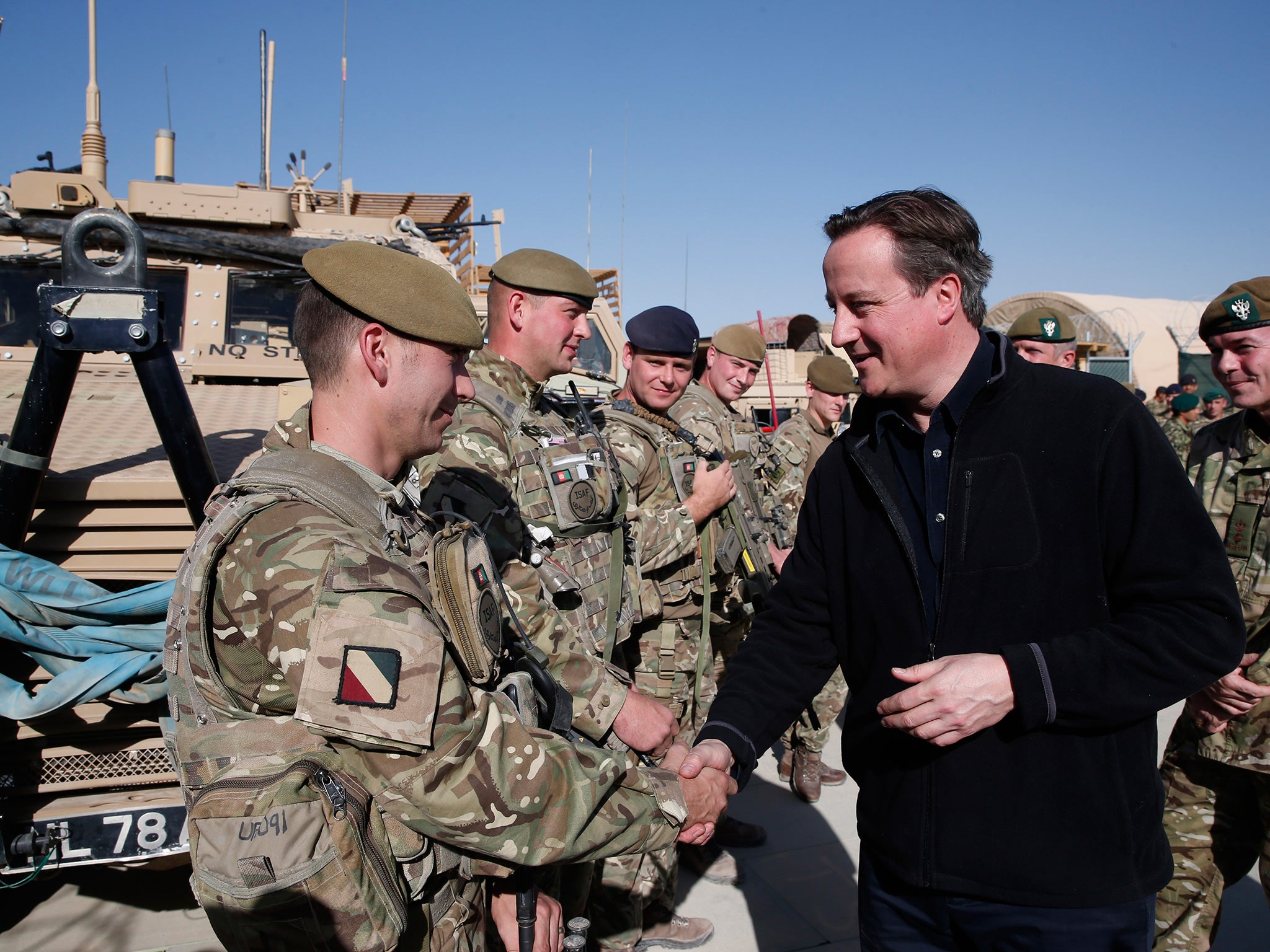Conservative MPs hit out at Government plans to cut defence spending
David Cameron has refused to commit himself to Nato targets

Twenty-seven Conservative MPs, including several former ministers, have signalled their dismay that a re-elected Tory government could cut military spending.
They backed a call for the Government to meet the Nato target for members countries to spend at least two per cent of gross domestic product on defence.
Mr Cameron has refused to commit himself to the target, saying the issue would have to be reviewed after the next election.
The critics forced a symbolic Commons vote in which they backed the two per cent target. They included former ministers Sir Malcolm Rifkind, Tim Loughton, Sir Peter Luff and David Davis.
Sir Malcolm, a former Defence Secretary, warned that continuing cuts would result in ”profound and irreversible change” to Britain’s defence capability and ability to conduct a global foreign policy with “authority and credibility”.
He said: “It's always dangerous to make comparisons with the 1930s but we know perfectly well that those in Berlin who were planning aggression believed that the western democracies were incapable of providing the resources required for strong defence and that influenced their foreign policy.”
Opening the debate, the Tory MP John Baron, a former captain in the Royal Regiment of Fusiliers, attacked the “incompetent” restructuring of the Army.
He said he believed defence spending should run at around three to four per cent.
Rory Stewart, the Conservative chairman of the Defence Select Committee, said the entire defence planning assumptions created in 1998 and again in 2010 had been bypassed by events.
The Democratic Unionist Party said it would only support a government in a hung parliament which backed two per cent minimum defence spending.
One of its MPs, Jim Shannon, said: “We don't want to see figures and budgetary considerations in this debate risk making us lose sight of what we are seeking specifically to achieve in practice - an armed forces that is equipped to deal with any and all circumstances that may reasonably occur.”
The Defence minister, Philip Dunne, told MPs the UK had the second largest defence budget in Nato and largest in the EU in both 2010 and 2015.
He added: “We do recognise the threats we face have changed since the last [Strategic Defence and Security Review]. These will be carefully reviewed which will help to determine the investment choices of the next government.”
He said: “It is not just about two per cent of GDP. It is about how you spend it and what you are prepared to do with it.”
Join our commenting forum
Join thought-provoking conversations, follow other Independent readers and see their replies
Comments